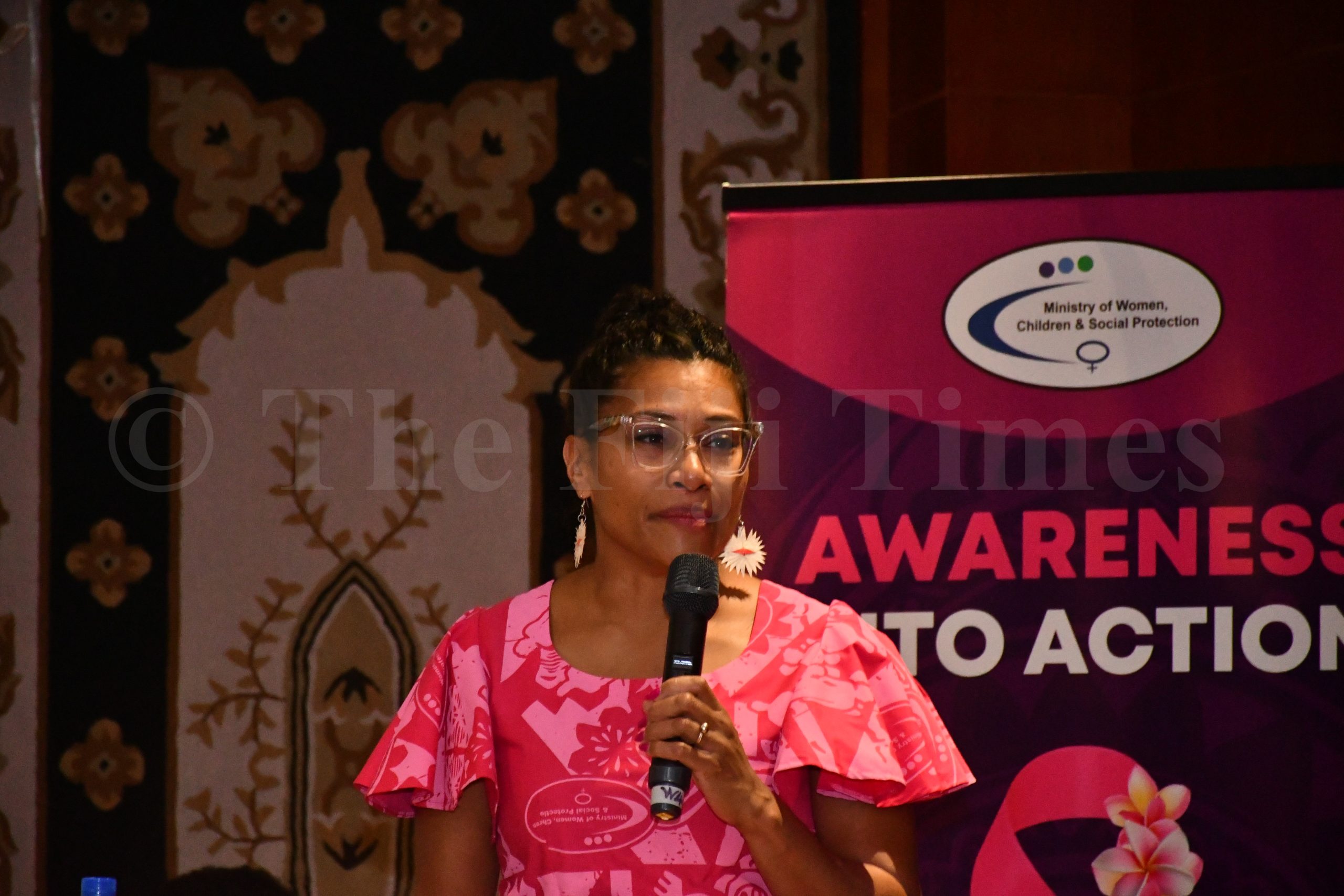Fiji Women’s Crisis Centre (FWCC) coordinator Shamima Ali has expressed disappointment following Women’s Minister Lynda Tabuya’s endorsement of Ratu Naiqama Lalabalavu for President.
Ms Ali questioned a previous reference made by Ms Tabuya that, “Ratu Naiqama was a male champion that helped break the cycle of patriarchy”.
“We would like the Minister for Women, Children and Social Protection to explain instances – where and how – Ratu Naiqama has consistently worked as a male champion to break the cycle of patriarchy in the whole of Fiji,” Ms Ali said.
“The statement made by Ms Tabuya is counter-productive to the efforts of the National Action Plan to eliminate all forms of violence against women and girls. For over five years, all of government and civil society came together to develop the National Action Plan (NAP).
“Why do we have a National Action Plan and sign on to international conventions if the Minister for Women will endorse and help elevate a man whose disrespect for women is renowned.”
In response, Ms Tabuya said she respected the opinion of the FWCC regarding the nominee for President.
She also acknowledged that Ms Ali held a different view to hers.
She said the endorsement was based on her personal and professional experience as a woman leader holding key positions in Opposition and Government.
“It is in no way to belittle the great work of Shamima Ali and FWCC as the secretariat of the NAP GBV implementation as well as the civil society and government efforts to bring such a transformative document like the NAP GBV.”
Ms Tabuya said she was fully committed to the implementation of NAP, which was supported by the Coalition Government and development partners like Australia.
“Regarding national unity, we all have our roles to play, whether you’re a chief or commoner or from a particular ethnic community.
“It is only through greater understanding, working together and communicating respectfully that we can serve our communities better and achieve social cohesion.
“I advocate for the compulsory teaching of our two main languages of iTaukei and Hindi in schools, as well as advocate for the passing of a Racial Harmony Act similar to Singapore to encourage greater social cohesion in Fiji.”



